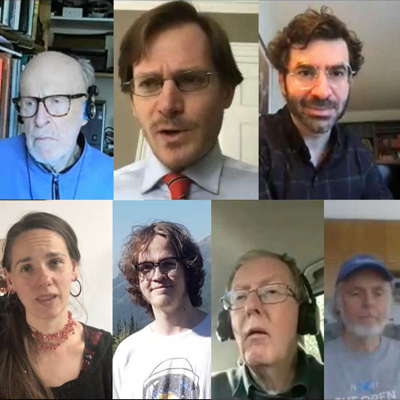 VIDEO PODCAST: John Dante Prevedini leads a discussion about Classical Music and Artificial Intelligence, including contributions from George Coulouris, Michael Stephen Brown, April Fredrick, Adrian Rumson and David Rain.
VIDEO PODCAST: John Dante Prevedini leads a discussion about Classical Music and Artificial Intelligence, including contributions from George Coulouris, Michael Stephen Brown, April Fredrick, Adrian Rumson and David Rain.
- Hans Wallat
- Romantic music
- Yiddish
- John Hopkins
- Alfred Denis Cortot
- Howells: Psalm settings
- Buddy Rich
- Roger Heaton
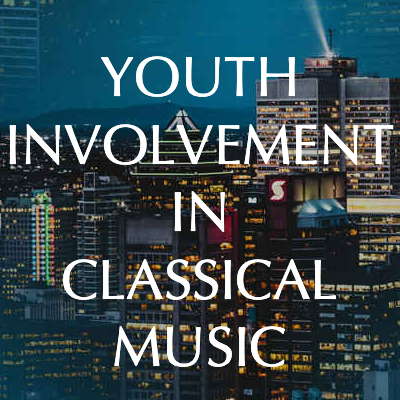 VIDEO PODCAST: John Dante Prevedini leads a discussion about Youth Involvement in Classical Music - this specially extended illustrated feature includes contributions from Christopher Morley, Gerald Fenech, Halida Dinova, Patricia Spencer and Roderic Dunnett.
VIDEO PODCAST: John Dante Prevedini leads a discussion about Youth Involvement in Classical Music - this specially extended illustrated feature includes contributions from Christopher Morley, Gerald Fenech, Halida Dinova, Patricia Spencer and Roderic Dunnett.

A Timeless Composition
GIUSEPPE PENNISI listens to
interweaved movements from Beethoven and Ligeti,
played by Herbert Schuch
In this magazine and in its predecessor, Music & Vision, I have often reviewed concerts of the Istituzione Universitaria dei Concerti (IUC), the music society which is an offspring of Rome's oldest university, Università La Sapienza. [Read Elective Affinities, 11 March 2019.] From October until May, the IUC has two concert series of international standard, on Tuesdays at 8:30pm and Saturdays at 5:30pm. The prices are quite low - less than half of those for concert tickets at the National Santa Cecilia Academy. The audience includes a high proportion of young people, and there is no need for formal attire.
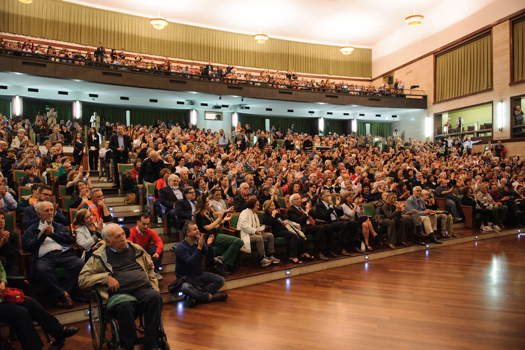
An audience in the Aula Magna concert hall in Rome. Photo © 2015 Damiano Rosa
The building and auditorium are attractive, comfortable, and there are excellent acoustics. Although the venue is close to the city center, there is a vast parking area. More importantly, the programs are well thought out and fanciful.
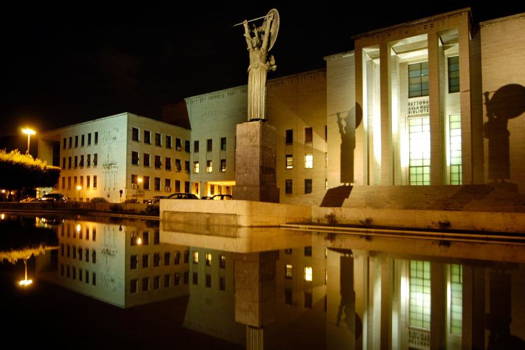
The Palazzo del Rettorato at Università La Sapienza
A very unusual and fancy idea is to combine György Ligeti and Ludwig van Beethoven. Yet the mix, or rather the merger, worked quite well on 9 April 2019, when the task was entrusted to Herbert Schuch. Born in Transylvania of German descent, and forty years old, he has gained a reputation for being among the most interesting pianists of his generation, with his strikingly conceived concert programs and CD recordings.
In 2013 he received the ECHO Klassik award for his recording of the piano concerto by Viktor Ullmann and Beethoven's Piano Concerto No 3 with the WDR Sinfonieorchester conducted by Olari Elts. In 2014, he issued a fascinating solo CD, Invocation, with works by Bach, Liszt, Messiaen, Murail and Ravel, which engages with the sound of bells. He was heard playing this program in recitals at the Salzburg Festival, the Stuttgart Musikfest, and in Dresden's Frauenkirche and Berlin' Philharmonie, among other venues. A piano-duet CD with Gülru Ensari, featuring works by Brahms, Hindemith, Stravinsky and Özkan Manav, was issued in early 2017. Schuch has worked with a number of renowned orchestras, including the London Philharmonic Orchestra, the NHK Symphony Orchestra, Camerata Salzburg, the Residentie Orkest Den Haag, the Bamberg Symphony, the Dresden Philharmonic and the radio orchestras of BeeMDR, WDR, NDR Hannover and Danish Radio. Thus, a sterling background.
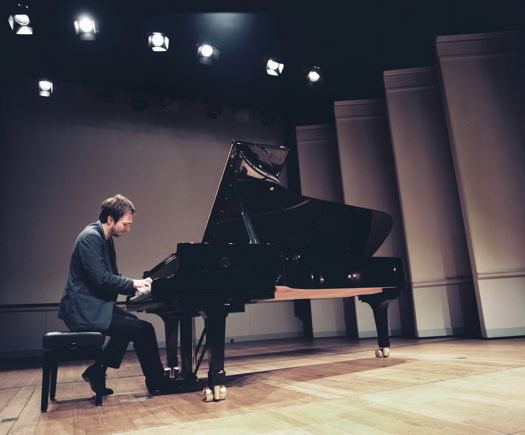
Herbert Schuch performing in 2014
On 9 April, the first part of the concert was the most interesting and innovative. Beethoven's Bagatelles Op 119 - eleven very short pieces composed between the 1790s and the early 1820s - were played by alternating each piece with one of the eleven miniscule compositions of Ligeti's Musica ricercata, written 1951-53. The compositions mirror different styles and times. Beethoven's eleven pieces include a waltz, a minuet, a few marked cantabile, and references also to a variety of musical ideas, even a solemn choral moment (although of course without a chorus) as a finale. Instead, Musica ricercata are the outcome of a period of crisis for Ligeti, who felt isolated in the cultural climate of Hungary when 'realistic socialism' was the name of the game in all artistic expressions, including music. Ligeti tried to develop a new musical language and syntax with pieces of only one or just a few notes through dynamic octaves (ie piano, forte and fortissimo). The title of the cycle is to be interpreted literally as 'researched music' or 'sought music'. This work captures the essence of Ligeti's search to construct his own compositional style, and as such presages many of the more radical directions Ligeti would take in the future. Musica ricercata had its debut in Sweden in 1969, almost twenty years after it was composed, but it became well-known to general audiences in 1999 when it was used in the sound track for a Stanley Kubrick film. Shuch has a really magic touch: overall the two cycles last about forty-five minutes and sounded like a timeless composition, an anthem to nearly two centuries of piano music. The audience was enthralled.
After the intermission, Schuch performed two quite popular Beethoven sonatas: No 6 in F, Op 10 No 2 and No 21 in C (Waldstein), Op 53. He was very sweet in the former and very joyful in the latter, especially in the third and last movement.
During the accolades, Schuch was asked for an encore. He was especially virtuoso in Liszt's Étude S 140 No 3 in G sharp minor, commonly called La Campanella (the Little Bell) in Italy.
Copyright © 11 April 2019
Giuseppe Pennisi,
Rome, Italy


